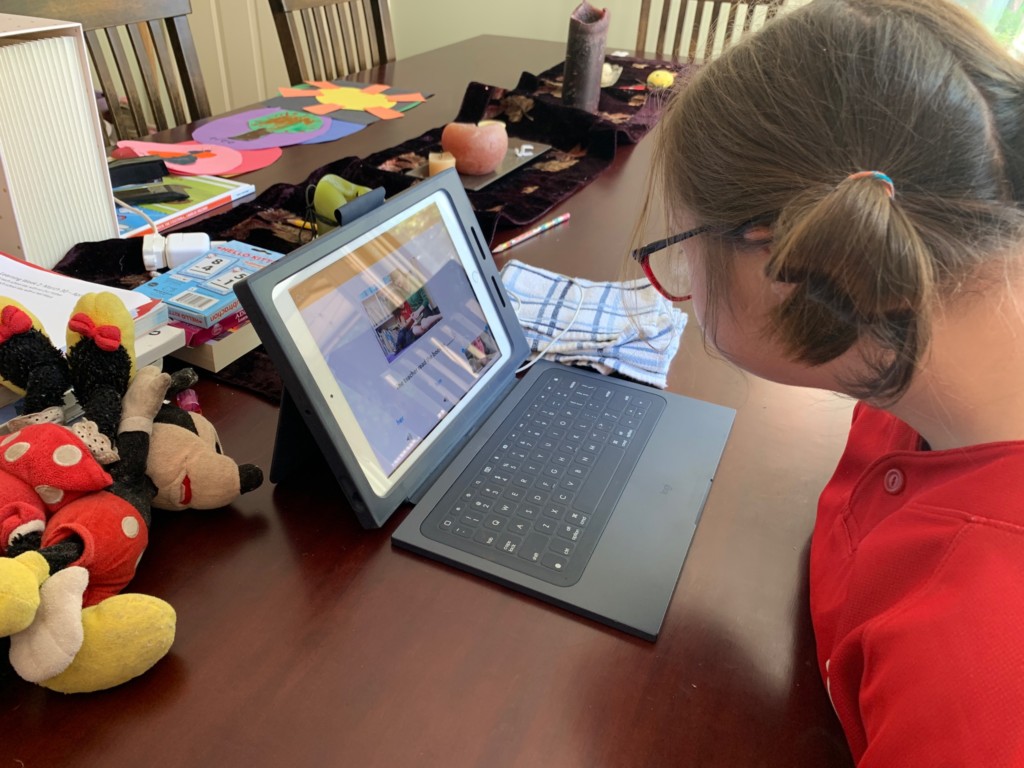
As of today, school buildings likely will be closed for the rest of the academic year in all states except Montana and Wyoming. Ready or not, if you are a parent or guardian, you may be spending the next few weeks rotating from your household and work assignments to your child’s virtual school assignments.
Some parents of traditional school students are reporting frustration. An April 21 headline from the Associated Press read, “’I Just Can’t Do This.’ Harried Parents Forgo Home School.” The featured parents expressed great concern that “their kids are falling behind.”
The day before the AP story, an article in The Atlantic encouraged schools to do more to help parents by giving students more space between assignments and urged parents to “take charge of their kids’ schooling.”
The scenario can be a frightening prospect for parents of children with special needs.
At the outset of the pandemic, the U.S. Department of Education issued two “fact sheets” so that schools could attempt to move instruction online without fear of violating traditional equity requirements for these children. The fact sheets urged parents and educators to switch from “business as usual” to being “creative” to reconfigure learning during the pandemic.
The small cadre of parents and children using education savings accounts in Arizona, Florida, Mississippi, North Carolina and Tennessee are one step ahead here. Because these families can use their accounts to pay for learning services and materials in and outside of their child’s school, they have been able to adjust their student’s instruction according to his or her needs.

“We’ve been busy,” says Cara Ragusa, whose daughter, Anna, was diagnosed with Down syndrome. “I’ve got two kids who have a full day’s worth of work every day.”
The family was one of the first in North Carolina to use an education savings account when the option became available two years ago.
“Because of the account, Anna’s been able to continue to get her therapies online through Zoom and different platforms for 30 minutes at a time,” Ragusa said.
Alisson Talley, whose 12-year old daughter, JoEllen, uses an account in Mississippi, said the essence of an education savings account is to pull in the right resources “to keep children learning the way they learn best.”
“This pandemic has accentuated what an education savings account is, that one-on-one attention,” Talley said.
She explained that JoEllen, who lives with Down syndrome, has been forced by the pandemic to learn skills many children take for granted, such as proper e-mail etiquette. JoEllen has video conferences with her teachers in the morning, and they try to “simulate as much as they can from the regular classroom,” Talley said.
Meanwhile, Anna has meetings each week with a speech therapist and an occupational therapist.
“They share their screens and try to do interactive projects together,” Ragusa said.
Like everyone, the girls have had to adjust over the last two months.
“Anna thrives on repetitive routine for academic success, so that’s been a big setback while distance learning,” Ragusa said. “But having her teachers and therapists work with her regularly helps.”
Nearly two months into school closures, things are beginning to feel “a little bit normal,” she said, explaining that Anna sometimes has four calls or video chats each day involving work with her classroom teacher and different specialists.
Talley said the online coursework has been effective for JoEllen. But she worries that Mississippi lawmakers will try to cut online expenses from the list of available learning options next year, which would be “devastating.”
“It’s been refreshing to know that what we are asking for [to continue to purchase online services] works now,” she said. “It’s become a reality because it had to.”
What may not work for a child in one state will be a success for another with a similar diagnosis somewhere else. The same can be said for mainstream children, too.
This is why education savings accounts are so valuable to students from all walks of life, with or without special needs, inside or outside of a pandemic.


